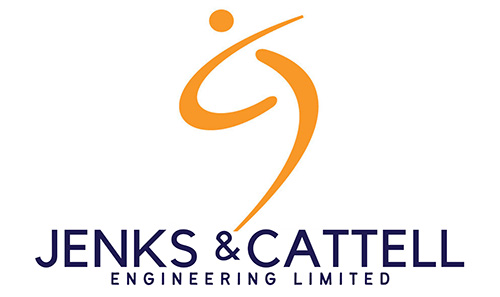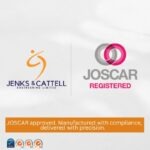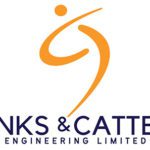Plastic Free July is a perfect time to reduce single-use plastic and celebrate industries offering sustainable manufacturing alternatives such as metal. We consider metal as ‘built to last, made to recycle’.
At Jenks & Cattell Engineering, sustainability is embedded in how we design, manufacture, and deliver engineered metal components. Our metal parts support sustainability across the automotive, construction, defence, and energy manufacturing sectors.
With over 135 years of UK manufacturing experience, we specialise in laser cutting, metal pressing, CNC machining, and welded fabrication. These processes manufacture strong, sustainable metal parts that often outperform plastic in recyclability, durability, and environmental impact.
Why Choose Metal Over Plastic?
The current global push for sustainability makes choosing metal over plastic more important than ever. The advantages of metal parts:
♻️ Recyclability & Reuse
Unlike most plastics, metals could be infinitely recycled without losing strength, quality, or performance.
Aluminium is the world’s most recyclable metal:
-
75% of aluminium ever produced is still in use today.
-
Recycling aluminium uses circa 95% less energy than producing it from raw materials.
-
It can be recycled endlessly with no loss in quality.
- Jenks & Cattell Engineering work with ALFED (Aluminium Federation) to practice sustainable aluminium usage in manufacturing.
At Jenks & Cattell Engineering, we recycle all metal offcuts and scrap — turning waste into valuable resources.
💪 Strength and Durability
Metal components are typically:
• Stronger — withstanding heat, pressure, and heavy wear.
• More durable — needing fewer replacements than plastic.
• Fire resistant — ideal for industrial and automotive applications.
Plastic can warp or degrade over time, but metal often stays structurally sound for years.
🔧 Manufacturing Benefits
Our manufacturing processes create precise metal components with complex shapes and precise tolerances.
• Laser cutting — fast, accurate, and ideal for complex parts.
• Metal pressing — efficient for producing high volumes of components.
• CNC machining — adds value and ensures consistency in every part.
These methods support leaner production with minimal waste and better performance.
⚖️ Metal vs Plastic: Pros and Cons
Recyclability: Metal is recyclable whereas plastic is often downcycled or non-recyclable.
Durability: Metal is strong and heat-resistant and plastic is lightweight but less durable.
Environmental Impact: Metal has a low impact, but plastic has a high CO₂ from production.
Cost: There are associated high upfront costs with metal with long-term savings, but plastic is cheaper now, and costly later.
Weight: Metal is heavier, with lightweight alloys such as aluminium being available, and plastic is lighter.
Applications: Metal is ideal for structural precision parts, and plastic is best for low-stress components.
Can Your Plastic Part Be Made in Metal?
Using plastic components? We may be able to offer a metal solution for them. Get in touch with our engineering team for a free design-for-manufacture (DFM) feasibility review to explore metal alternatives.
This is especially useful for parts exposed to heat, stress, or harsh environments. We’re ready to help you make a sustainable switch from plastic to metal – make Plastic Free July your incentive today.








